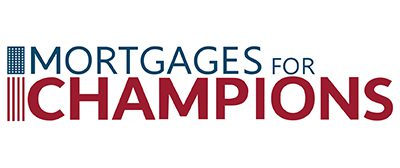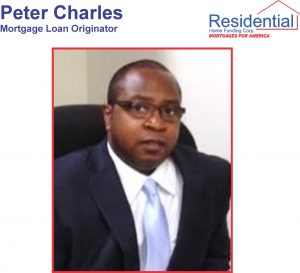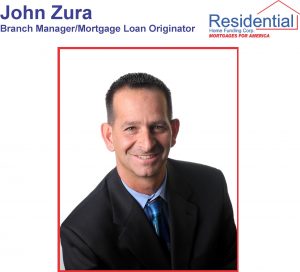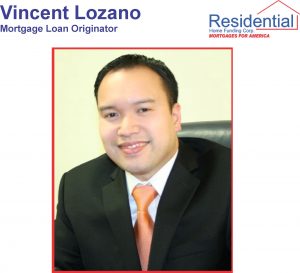Continuing Education Requirements:
More Than Compliance; A Path To Success
By Barbara Scalera, Residential Home Funding
There’s one school of thought that says continuing education requirements are here and mortgage originators have to live with it. There’s another that says the regulation and oversight are too much, and it’s time to leave the industry. And finally, there’s the school of thought that says mandatory education is not only necessary, it’s great for the industry, and should be embraced.
Considering where the mortgage industry has been, this last option seems the best by far.
The number of hours vary, depending on the state, but the goal of continuing education is uniform throughout the country: equip mortgage loan originators with the necessary information to most effectively and efficiently provide mortgage services. The time spent in class will help eliminate problems and issues throughout the year.
There’s no doubt that some mortgage originators view continuing education as a necessary evil. They are the same ones who will be cramming at the end of the year to squeeze in their continuing education classes, like cars lined up at a motor vehicle inspection station on the last day of the month.
This “compliance” mentality toward continuing education is great news for the portion of mortgage originators who view yearly coursework as a way to improve themselves and separate themselves from the competition. Remember pre-2008, when just about anyone could hang a shingle and claim they were mortgage loan officers? Recall how difficult that made it for the experienced MLOs who actually had expertise and training, knew the ins and outs, and could expertly guide a new home buyer through the maze of the mortgage process. The real estate bubble and the new licensing requirements effectively took care of those who were less professional, leaving a leaner and smarter group of mortgage professionals to improve the industry’s reputation, loan by loan.
The annual continuing education requirements may have the same effect on the unmotivated and sometimes incompetent loan originators and they may drop out of the industry because of the hassle. And as previously noted, there are some originators who will take the courses, but do so begrudgingly, and not really become a more professional MLO because of the additional education.
Continuing Education Benefits:
Mortgage loan officers may think they have heard or seen just about every scenario, but the truth is that 1. They haven’t; and 2. The mortgage industry is in a state of flux, and the rules and regulations are constantly changing based on the events of 2008-09. When faced with a unique situation, asking a colleague, company executive or a compliance officer is better than providing an educated guess, but not as good as knowing the answer yourself. Prospects and customers are typically impressed when you are educated, confident and can answer the tough questions.
Even with continuing education, it’s not unusual for mortgage loan originators to have questions, especially if they’ve heard or read conflicting information. The mandatory continuing education courses are a great venue to have these questions answered, even if the coursework doesn’t address them directly. Most expert instructors can provide their perspective at any time during class.
Additionally, a proactive approach to continuing education results in:
- Better comprehension of federal and state laws
- Better understanding of the rules and regulations still being formulated, and the compliance issues associated with specific loans
- Better understanding of the government agencies tasked with making and implementing these rules
- Increased chance that clients and prospects will view you has a true expert in the industry and therefore confidently refer you to others
It’s important to note that potential customers are coming in more educated than in the past. There is an abundance of personal finance and mortgage-related information websites which allow these prospects to know more about the mortgage process and ask more informed questions.
What to look for in a continuing education program:
From the outside, schools that offer continuing education courses can look very similar. They are all approved through the National Mortgage Licensing System, after all. But there are key factors to consider:
Are the instructors working in the industry? Look for instructors who work within the industry and are not just “book-trained” in mortgage issues. Residential Home Funding, works closely with Mortgage Finance School, of Parsippany, NJ, which became licensed as an NMLS-approved course provider in 2013. We are partial to them because of the instructors they have in place. Among their instructors is Tom Marinaro, president of Residential Home Funding, and a licensed mortgage originator, with more than 20 years experience in the industry. There’s also an attorney with more than 25 years mortgage industry experience on the instruction staff, as well as practicing mortgage industry executives and a real estate professional.
Because they work in the mortgage and real estate industries every day, these instructors are able to integrate instruction on the new rules with practical applications and examples from their real world experience. Just as importantly, they can explain how changes in rules and regulations translate into the day to day work and mortgage origination process.
Does the continuing education facility travel? Some continuing education facilities such as Mortgage Finance School, can mobilize their coursework, and travel to either a mortgage firm’s office or a nearby hotel or conference center to make it more convenient for the loan officers to attend. Because licensing is relatively new, and getting approved to offer coursework is an arduous process, the number of approved course providers can be geographically limited. In New Jersey, for instance, there are less than 10 facilities throughout the state.
Do they offer courses in multiple states out of their facility? In many areas, such as the greater New York metropolitan area, it’s not unusual for referral business to come from another state. It’s important for many loan officers to be licensed in multiple states – and much easier for them to keep up with continuing education if they can do so in one primary facility.
Are courses offered online, as well as live? Once frowned upon in the education field, online and webinar-based courses are now an everyday part of many educational systems. It’s not for everyone, but it’s good to know that your provider can deliver courses in a variety of formats.
Hot Continuing Education Topics:
There is no shortage of new topics and updates to be addressed. Some could even argue that the current mandated federal and state continuing education hours are not enough. Here are some of the topics being addressed by the latest coursework, courtesy of Mortgage Finance School’s syllabus:
- Federal laws including Dodd-Frank, anti-discrimination, Truth-In-Lending-Act, and Real Estate Settlement and Procedures Act.
- Terms and conditions of Qualified Mortgages as determined by the Consumer Financial Protection Bureau.
- Requirements of the HOEPA amendments to the Truth-In-Lending-Act that require a creditor to verify and document a borrower’s ability to repay a home mortgage loan.
- RESPA and the updated foreclosure requirements of RESPA amendments.
- Differentiate between loan-to-value and loan-to-cost.
- State specific rules, regulations and programs (such as differentiating between civil and criminal usury in New York, and identifying the Housing Purchase and the Owner-occupied Residential Mortgage Programs in Pennsylvania).
Conclusion
To say the least, the mortgage industry has had many changes since 2008. Even if continuing education wasn’t mandatory, it would be highly recommended. It’s a no-brainer when considering the factors that separate the best MLOs from the rest. Primary factors are motivation; knowledge/expertise; and experience. It’s impossible to teach motivation or to create experience overnight. That leaves knowledge/expertise as the only factor that differentiates MLOs in the short term. How do they improve their knowledge and expertise?
Two words: Continuing Education.
# # #
About the Author: Barbara Scalera is the Licensing and Compliance Officer for Residential Home Funding, a licensed mortgage banker in the mid-Atlantic Region. Residential Home Funding is headquartered in White Plains, N.Y., with corporate offices in Parsippany, N.J. Scalera can be reached at bscalera@rhfunding.com or at 973-577-7008, ext 245.











